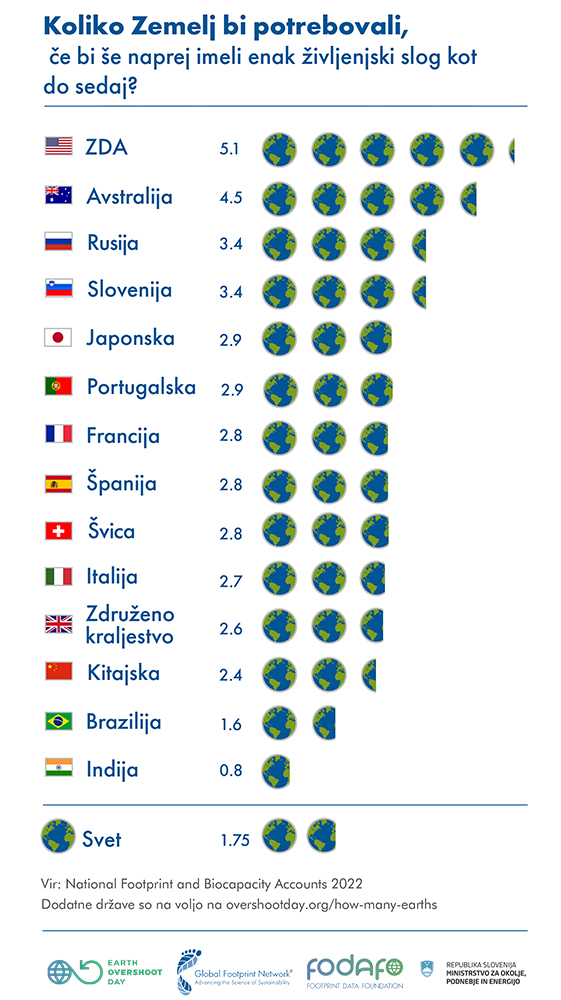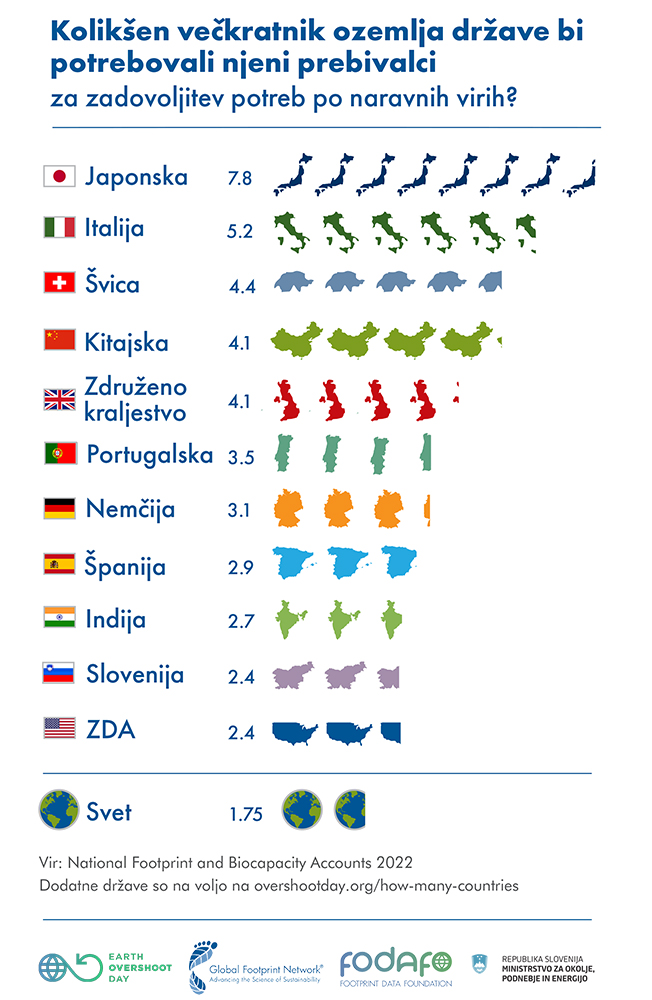LJUBLJANA, SLOVENIA – JULY 28 – In an unprecedented collaborative endeavor, Slovenia’s Ministry of Environment, Climate and Energy, in partnership with Global Footprint Network, announces a critical date for the planet: this year’s Earth Overshoot Day lands on August 2nd. The persistence of overshoot has led to land and soil degradation, fish stock depletion, deforestation, biodiversity loss, and greenhouse gas accumulation. These symptoms are becoming more prominent every day across the planet, with unusual heat waves, wildfires, droughts, and floods, exacerbating the competition for food and energy.
The date of Earth Overshoot Day, calculated by Global Footprint Network each year using National Footprint and Biocapacity Accounts data, marks the point when humanity’s demand for biological resources exceeds the Earth’s capacity to regenerate them within that year. To spotlight this issue, the Ministry and Global Footprint Network are organizing a high-level event on August 1st, held in Ljubljana and online, to discuss the implications of overshoot. The high-level event enjoys support from key figures including President of the Republic of Slovenia Nataša Pirc Musar, UN Climate Change High-Level Champion for COP28 and IUCN President Razan Al Mubarak, and Co-Chair of the International Resource Panel at UNEP Dr. Janez Potočnik.
“Slovenia, as the first EU country, joins the ranks of countries such as Ecuador, Japan, the Philippines, Switzerland, and the United Arab Emirates, leveraging Ecological Footprint data and officially endorsing the metric as a useful tool to steer environmental policy,” affirms Bojan Kumer, Slovenia’s Minister of the Environment, Climate and Energy. He further elucidates that efforts to reduce Slovenia’s Ecological Footprint by 20% by 2030 will spur greater opportunities for the country amid a future marked by climate change and resource constraints.
Razan Al Mubarak notes the Ecological Footprint’s utility, “With this metric in hand, any country, region, city, or company can assess its current standing and determine how it can contribute to postponing this date (Earth Overshoot Day).” It provides valuable insights for forward-thinking strategies that address resource security and enable the transition towards a sustainable economy.
Earth Overshoot Day coincides with the European Parliament’s recent vote on the Nature Restoration Law. Indeed, the EU has much potential. Research from our colleagues at Wageningen University & Research shows that redesigning the food system with circularity principles has the potential to reduce the EU’s per person Footprint by 24%, while increasing the biocapacity by 12%. The magnitude of such an EU food transformation is large enough that it would push back the EU Overshoot Day by 34 days.
“The biggest risk, apart from ecological overshoot itself, lies in complacency towards this crisis. Entities that act now are not just safeguarding the environment but future-proofing their economy and the wellbeing of their residents,” underlines Steven Tebbe, CEO of Global Footprint Network.
Media Contact
soj.mope@gov.si (Slovenia)
media@footprintnetwork.org (Global Footprint Network)



